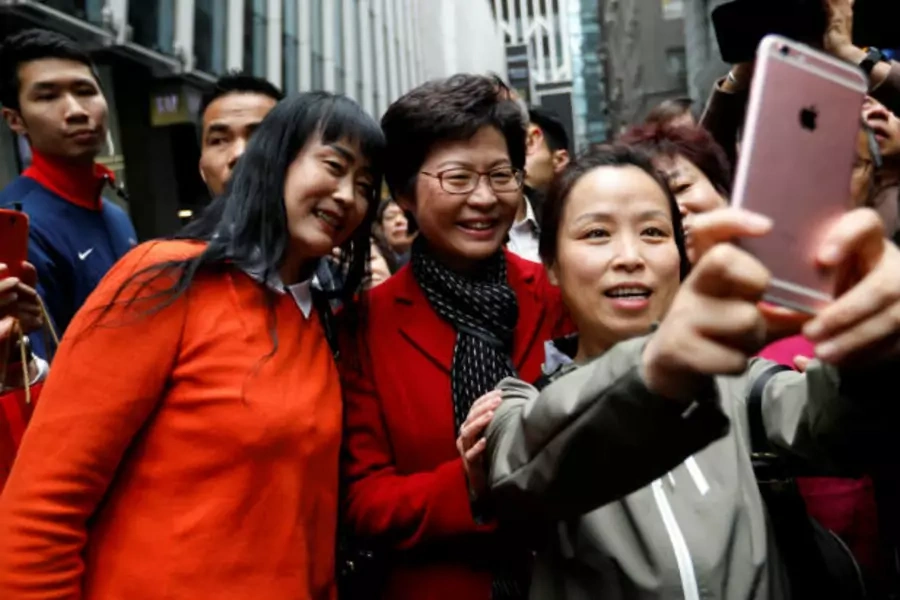Women Around the World: This Week

More on:
Welcome to “Women Around the World: This Week,” a series that highlights noteworthy news related to women and U.S. foreign policy. This week’s post, covering from March 26 to April 3, was compiled with support from Becky Allen, Alyssa Dougherty, and Loren Grier.
Hong Kong elects female leader
Hong Kong made history last week by electing Carrie Lam as its first-ever female chief executive. Lam’s election comes after years of stagnation in women’s political participation: after gains in women’s economic and political participation in the 1990s and early 2000s, the percentage of female senior government officials in this semiautonomous territory has stalled at around 30 percent, with the proportion of women parliament remaining at about 15 percent. Lam previously served as chief secretary and second in command to the unpopular departing chief executive, and the only woman in the cabinet of sixteen officials. She will take office amidst public unease, following the government’s failure to address the grievances that led to the Umbrella Protests of 2014, which called for the people’s right to popularly nominate and elect the chief executive. Critics argue that Lam’s election by a 1,200-member special committee was because of her status as Beijing’s preferred candidate, even though her opponent—former Financial Secretary John Tsang—enjoyed significantly more popular support. In a speech following her election, Lam vowed to bridge political rifts and encourage more women to pursue office.
Iceland closes gender pay gap
Iceland introduced new legislation to require companies to offer proof of equal compensation between male and female employees. Designed as an enforcement mechanism for Iceland’s existing equal pay laws, the new legislation would require companies with more than twenty-five employees to undergo audits beginning in 2022 and remedy gender wage gaps of more than 5 percent. The country’s largest organizations and government agencies will undergo audits as soon as next year. While Iceland leads other nations in workplace fairness policies—from generous parental leave policies to gender quotas for private sector boards—progress on pay equality has lagged: women in Iceland earn an estimated 14 to 20 percent less than their male counterparts, which is only slightly better than the global average gender wage gap of 23 percent. Analyses suggest that full implementation of Iceland’s new legislation could result in the elimination of the country’s gender pay gap within just five years.
Former Argentine President faces charges
A judge ruled last week that former Argentine President Cristina Fernandez de Kirchner will stand trial for financial mismanagement. The charges are unrelated to last year’s indictment of the former president and two aides in a fraud case involving public works. Kirchner, who led Argentina from 2007 to 2015, succeeded her husband Nestor Kirchner and was re-elected in a landslide popular victory in 2011. Kirchner is widely considered to be one of the most powerful presidents in Argentina’s history, having enjoyed a solid legislative majority throughout most of her presidency and enacting sweeping legislation to boost school enrollment, provide benefits to families with young children, and prosecute human rights violations. However, her exit from office and subsequent prosecution comes at a time when several prominent female leaders in South America have become embroiled in high-profile corruption and mismanagement scandals.
More on:
 Online Store
Online Store